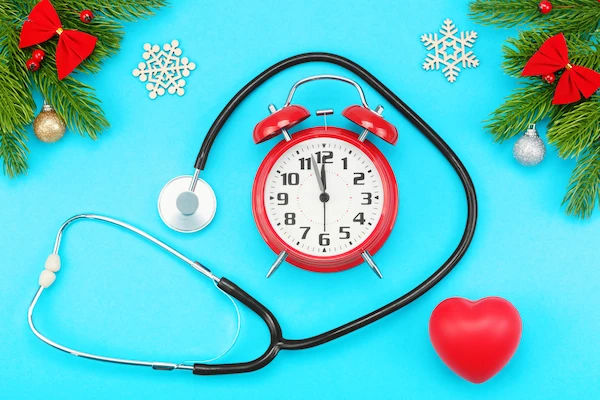- female
- 35 Years
- 29/01/2025
I'm really worried because after recovering from COVID in May, I've been having chest pain that comes and goes. At first, it eased up but then returned. I had a couple of ECGs; one was normal, but three months later, it showed an irregular heartbeat, although all other tests came back normal. My doctor thinks it might be costochondritis since the pain is really sharp and in the upper rib area. Last night things got intenseI woke up suddenly with really strong palpitations. A doctor I know recommended some medications including Thiospas 4 mg, Tramadol, and Dexa 4 mg for 3 days, to be tapered slowly. I've already taken steroids during my COVID treatment for about 9 days, and I'm really anxious about taking them again. Should I go ahead with this treatment? I need advice quickly.
Answered by 1 Apollo Doctors
Its understandable to be cautious after taking steroids during COVID. Given that your chest pain and irregular heartbeat are likely due to costochondritis, the suggested medications may help, but steroids like Dexa should only be taken under close medical supervision. It's important to discuss your concerns with your doctor, especially about tapering off steroids safely.
Dr. Anshul Suggests...
Consult a Cardiologist
Answered 04/07/2025
0
0

More Cardiology Health Queries
View allI'm a bit worried because my echocardiogram showed trace trivial tricuspid regurgitation. Is this something serious? What kind of treatment might I need for it?
no treatment is required , salt restricted diet ,, DASH diet with fruits,legumes and green leafy vegetables are advised ..Also aerobic exercises daily advised to the patient..ACE inhibitors and calcium channel blockers if symptoms are aggrevated,monitor symotoms and echo once i 6-12 months..
Answered by 1 Apollo Doctors
I've been having a tough time over the past couple of years with losing my job and family issues. Lately, I've been feeling this crushing sensation in my chest at times. A few years back, I was told I have mild mitral valve prolapse, but I never started any medication for it. I feel mild pain sometimes, but it never lasts more than two weeks. I'm trying to figure out if this chest pain is because of stress or my MVP. Ive also been feeling really down and anxious, especially at night, often ending up in tears. Some people close to me think I might have some psychological issues. What should I do?
It sounds like you are going through a lot of stress and emotional turmoil. The chest pain you are experiencing could be related to both stress and your history of mild mitral valve prolapse. It is important to address both the physical and emotional aspects of your health. For the chest pain related to mitral valve prolapse, you should consult with a doctor to determine if any medication or treatment is necessary. In the meantime, you can take over-the-counter pain relievers like acetaminophen to help with the pain. To address the stress and emotional issues you are facing, it would be beneficial to seek therapy or counseling to help you cope with your feelings of depression and anxiety. Additionally, practicing relaxation techniques such as deep breathing, meditation, or yoga can also be helpful in managing stress. In terms of medication, you can consider taking an antidepressant such as sertraline at a low dose to help with your depressive symptoms. It is important to consult with a doctor before starting any new medication to ensure it is safe for you. Remember to prioritize self-care, reach out to supportive friends and family members, and consider joining a support group to connect with others who may be going through similar experiences. Take care of yourself and know that it is okay to seek help when needed.
Answered by 1 Apollo Doctors
I'm a bit worried about my ECG results that I attached. Is there anything serious I should be concerned about? I noticed the T axis is at 1. Can you give me some advice on what this might mean?
Based on the information provided, a T axis of 1 in an ECG is within normal limits and is not typically considered a serious issue. However, it is important to consider the entire ECG report and any symptoms you may be experiencing for a comprehensive evaluation. If you have any concerns, it is recommended to follow up with your healthcare provider for further assessment and guidance.
Answered by 1 Apollo Doctors
Disclaimer: Answers on Apollo 247 are not intended to replace your doctor advice. Always seek help of a professional doctor in case of an medical emergency or ailment.



